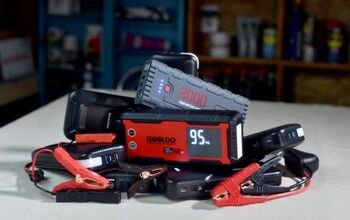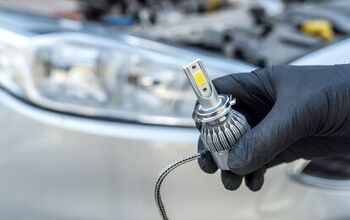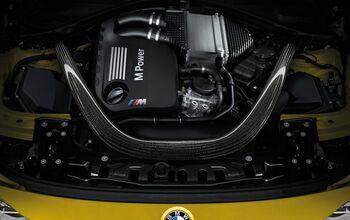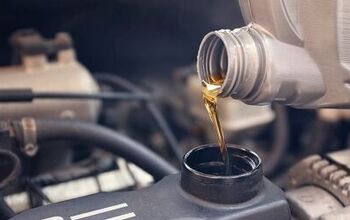Do You Have to Change Your Oil Every 3,000 Miles?

To quickly answer the inquiry posed in this article’s title, NO! Modern vehicles do not need to have their crankcase lubricant exchanged every 3,000 miles. However, there are caveats and you need to be aware of them. We’ll explore these in greater detail after the jump so go ahead and click the link. We’ll wait for you.
Frank Donnelly, senior manager for Mopar maintenance portfolio said the 3,000-mile period is “certainly relevant, just not on cars produced today,” although he also said there are plenty of vehicles on the road that still require new oil according to that interval.
In decades past when carburetors were de rigueur, fuel dilution of the lubricant was an issue and something that necessitated regular changes. Fortunately the greater precision of fuel injection alleviates this problem.
SEE ALSO: What is Motor Oil?
And if all of that wasn’t enough, oils of the past simply weren’t as good as the ones available today. This is true of both high-end synthetic and good old conventional. The science of lubrication is miles ahead of where it once was.
“[Conventional] oil is better than it used to be,” said Ed Newman, advertising manager at Amsoil Inc., though he said it’s still more volatile than synthetic so it “boils off quite a bit,” which is the reason it tends to get thicker over time. Additionally heat is a killer of dinosaur-based lubricants. “It does cause conventional oils to have issues, oxidation being the primary one.”
Technology to the Rescue
Ensuring drivers get the most out of their oil, many manufacturers including Chrysler have introduced systems that monitor a battery of vehicle parameters to determine how much life is left in the lubricant. Some of these data points include temperature, engine load, idle time and number of cold starts. “Those are the inputs that are driving the indicator,” said Donnelly.
Obviously your engine’s oil isn’t going to last as long as if you regularly tow a horse trailer up a mountain in stop-and-go traffic as it would if you commuted to work on a flat, empty highway at steady speeds. If your driving habits put you in the latter category Donnelly said “you’re going to be at the longer end of the interval,” which for Chrysler can be as much as 10,000 miles or more. If you’re in the former camp of severe-duty users, plan on changing the oil more frequently. “The low end of it is 4,000 miles,” he said.
The result of this computerized monitoring is beneficial to drivers and the environment. “We’re able to reduce the time and money that customers have to spend maintaining their vehicles,” said Donnelly, which in today’s hectic world can be a godsend. Also, fewer trips to the shop reduce waste oil, which is good for Mother Earth.
Still, if you drive little and under ideal circumstances they do recommend you change the oil on occasion. “We do ask customers to make sure they go in once a year,” said Donnelly. This is important because the additives in lubricant can break down over time. Things like detergents, anti-foaming agents, corrosion inhibitors, friction modifiers and more can all degrade. Modern engine oil goes far beyond simple refined crude; it’s loaded with more ingredients and chemicals than a TV dinner, though probably fewer preservatives and a lot less MSG.
To Infiniti and Beyond (or at Least 25,000 Miles)
But there’s another way to reduce maintenance and extend your vehicle’s oil-drain intervals, especially if it’s older and lacks a monitoring system. Instead of relying on computerized sensors and algorithms you can simply use a more advanced lubricant.
There are numerous high-end synthetic oils on the market today and many of them promise to last for thousands and thousands of miles. One of the most well known of these is Amzoil. Their flagship Signature Series lubricant is rated to last for a whopping 25,000 miles or one year. That’s like driving the entire circumference of the earth’s equator without changing the oil.
“The way motor oil is formulated, it’s a base stock and then additives,” said Newman, noting that what differentiates their products is the extra chemicals they put in. “The additives play a role and what we’ve always done is have beefier additives packages.”
Newman said, “We’re a private company,” adding that their publicly traded rivals are always looking for ways to improve margins for their shareholders. “Amsoil has a different target,” he said, “to be the best.”
Interestingly, the company was founded by a former fighter pilot. Newman said the benefits of synthetic lubricants were really discovered by these top-gun fliers back in the 1950s and ‘60s. During the wintertime he said their aircraft performed just fine in cold conditions but their vehicles were another story. “All these pilots would come back and see that their cars wouldn’t start,” because the oil had thickened so much.
Still, it wasn’t an easy task adapting a synthetic lubricant from aviation to automotive applications. It took Amsoil 10 years of work. Newman said seal swell and other issues had to be addressed before they could offer it on the market.
And their products have been put to the test in many situations. For instance, “We have truckers that go on hundreds of thousands of miles without changing their oil,” said Newman, though to be fair they are swapping filters and topping the engine off as necessary. He said they also rely on something known as oil analysis, which is essentially the scientific scrutiny of lubricant to determine when it’s time to change it or if anything is starting to go awry inside the engine. For instance if the test reveals there’s a high amount of copper or something like that in the oil it could signal that a bearing is starting to fail.
Doing all of this Newman said one trucker was able to go more 900,000 miles before changing the oil, though some sort of mechanical failure kept him from hitting a million.
With better base stocks and more additives Amsoil products are engineered to go the distance, though Newman cautioned drivers need to have a little common sense. “We do recommend you check your oil,” he said. If you vehicle leaks or burns lubricant this can lead a low-oil situation, which could be disastrous. Also, make sure to use the correct viscosity as recommended by the manufacturer.
When asked about extended-drain oils Donnelly said, “We don’t test their oils … what we say is use our specification of oils and you’re going to have to do it once a year or when your indicator tells you.” “We can’t substantiate the claim of somebody else’s oil.”
Even so, synthetic lubricants offer a host of benefits compared to their “crude” counterparts. According to Newman it’s longer lasting, has a lower pour point, helps keep engines cleaner and running cooler plus it can improve both performance and efficiency. “The difference is a premium oil [that’s] properly formulated will give you much better results,” he said, though if your vehicle is so-equipped it’s hard to argue with an oil-life monitor.
Find mores stories like this one in our Tips and Advice section.

Born and raised in metro Detroit, Craig was steeped in mechanics from childhood. He feels as much at home with a wrench or welding gun in his hand as he does behind the wheel or in front of a camera. Putting his Bachelor's Degree in Journalism to good use, he's always pumping out videos, reviews, and features for AutoGuide.com. When the workday is over, he can be found out driving his fully restored 1936 Ford V8 sedan. Craig has covered the automotive industry full time for more than 10 years and is a member of the Automotive Press Association (APA) and Midwest Automotive Media Association (MAMA).
More by Craig Cole





































Comments
Join the conversation
Our newer Kia Optima SX Turbo recommends changing oil every 7500 miles. Since I change my own oil I use the Mobil 1 15000 mile extended range synthetic. Every 5k I change the filter (fram 6x $5 at Walmart) and never had a problem with any of my 4 cars. This includes my vette, Jeep Commander a older Elantra (150k and never burned a drop of oil between filter changes.) Once the oil hits the magic number I run a half bottle of motor flush for about three minutes to clean out the engine and there is always some sludge (not much) in the pan. I would recommend highly if towing or stop and go city traffic to change the filter at 2500 mile intervals. Another thing is changing the trans fluid on automatics and antifreeze ( thermostat) every 50k (filter too) and sooner if towing or heavy use. Next comes power steering and brake fluid which few of us every consider changing. Its important especially brake fluid since the anti lock brakes are very expensive to repair.
I drove a 99 Caravan added oil as it got low never serviced the trans! At 201600 miles the trans stooped working maybe I should have serviced it? I owned a Smog station and when 3 or 4 cars would fail the test in a row I would bring it in and run a test on it and it was cleaner at the end than with 20,000 miles on it. I am not saying it was a good thing. It is just up until they stopped using carbs they would continue to leak gas into the cylinder's and it would bypass the rings and condensation in the engine you needed to change oil at about 3000 miles. With FI gas stops right now. Oil lasts longer...... Your mileage may very?